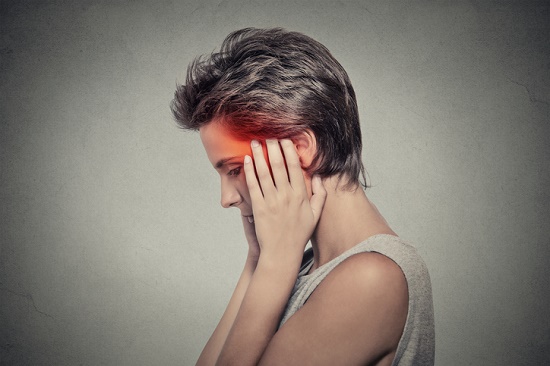
While it’s true that there is at this time no scientifically-verified method to cure tinnitus, researchers are hard at work to uncover one. In the meantime, a range of tinnitus therapy options are available that can offer substantial relief.
Think about it in this way. If you have a headache, you take Tylenol in spite of the fact that it doesn’t “cure” your headache. Pain relievers merely make the pain fade into the background so that it doesn’t interfere with your day. In the same way, tinnitus therapy can help lower the severity of symptoms so that your tinnitus has negligible impact on your daily life.
Given that everyone reacts to tinnitus in a different way, there’s no one-size-fits-all treatment. You’ll need to work together with your provider to determine the option that works best for you.
Here are some of those options.
Tinnitus Treatment Methods
If you experience tinnitus, you’ll want to explore the following treatment options with your hearing care or healthcare professional.
Treatment of the underlying problem
Whereas most instances of tinnitus are not curable—and are derived from hearing loss or other non-reversible damage—certain cases are the result of an underlying physical ailment. You’ll want to rule these out prior to pursuing other treatment methods.
Potential physical causes of tinnitus include jaw joint problems (temporomandibular joint, or TMJ dysfunction), excessive earwax or other obstructions in the ear canal, head and neck injuries, and side effects to particular medications.
General Well-Being
The seriousness of tinnitus symptoms can fluctuate depending on overall health. Taking actions to boost general fitness is, consequently, something tinnitus sufferers can get started on immediately to reduce the level of intensity of symptoms.
Each individual is unique, and what works out for someone else may not work for you. The purpose is to try out a range of activities to discover what works best.
Activities that have shown promise include instituting a healthy diet, achieving plenty of physical exercise, meditating, and partaking in activities like cycling, which can mask the sounds of tinnitus.
Hearing Aids
Tinnitus is frequently linked to hearing loss and hearing damage. In response to decreased stimulation from outside sound, the brain undergoes maladaptive changes that trigger the perception of tinnitus.
By increasing the amount of environmental sound, hearing aids can help mask the tinnitus, making the sounds of tinnitus less noticeable. Hearing aids in addition provide elevated sound stimulation to the brain, which is thought to be neurologically beneficial.
Sound Therapies
Sound therapy is essentially the delivery of sound in the form of white noise, pink noise, or nature sounds to minimize the perceived burden or severity of tinnitus.
Sound therapy works by covering up the tinnitus and additionally by teaching the brain to recategorize the sounds of tinnitus as inconsequential. This combined effect can reduce the short and long-term intensity of tinnitus.
Sound therapy can be provided through special tabletop gadgets, but also through portable multimedia products and even through hearing aids. Medical-grade sound therapy employs tailored sounds that match the pitch of the individual’s tinnitus for the most effective results.
Behavioral Therapy
Remember that tinnitus is the sense of sound in the brain when no exterior sound is present. The ailment is, for that reason, very subjective, and each person reacts differently.
In fact, whether or not the individual perceives tinnitus as debilitating or minor is largely due to emotional reactions and not to the volume or pitch of the tinnitus. That’s why cognitive/behavioral approaches to tinnitus therapy have been shown to be exceptionally effective.
A number of techniques exist, including Mindfulness-Based-Stress-Reduction (MBSR) and Tinnitus-Retraining-Therapy (TRT), which combines cognitive-behavioral-therapy with sound therapy.
Drug Therapy
Even though there are no current FDA-approved medications for tinnitus, antianxiety and antidepressant medications are commonly utilized to manage the behavioral responses to tinnitus. These drugs do not appear to influence tinnitus itself, but may furnish much-needed relief if thought to be necessary by your doctor.
Experimental Therapies
The search for a tinnitus cure is continuous. A variety of experimental therapies are in development or testing and new approaches become available each year. If your tinnitus is severe, and you’ve experienced very little benefit from existing therapies, you could be a candidate for one of these innovative treatment options.
Check out the Experimental Therapies page at the American Tinnitus Association website for more details.
Find Relief For Your Tinnitus
Tinnitus is currently being aggressively studied, with brand new findings and potential treatment methods introduced every year. Even now, there are several encouraging treatments that, while not supplying a cure, can provide significant relief. You owe it to yourself to inquire about these options, remain positive and persistent in your tinnitus care, and work together with your provider to adjust your treatment plan for the greatest results.
